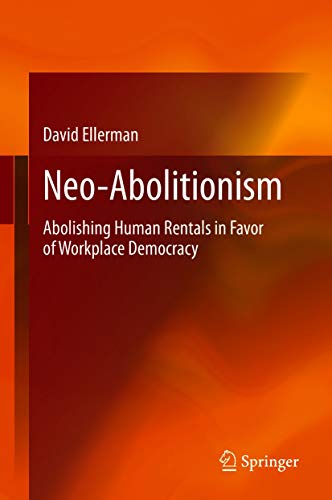

Most ebook files are in PDF format, so you can easily read them using various software such as Foxit Reader or directly on the Google Chrome browser.
Some ebook files are released by publishers in other formats such as .awz, .mobi, .epub, .fb2, etc. You may need to install specific software to read these formats on mobile/PC, such as Calibre.
Please read the tutorial at this link: https://ebookbell.com/faq
We offer FREE conversion to the popular formats you request; however, this may take some time. Therefore, right after payment, please email us, and we will try to provide the service as quickly as possible.
For some exceptional file formats or broken links (if any), please refrain from opening any disputes. Instead, email us first, and we will try to assist within a maximum of 6 hours.
EbookBell Team

4.0
16 reviewsThe most problematic institution in the economic system throughout most of the world is not the market or private property but the employer–employee relationship. In the technical terms of economics, the employer is renting the employees. The abolition of slavery ended involuntary slavery but also ended any voluntary contractual form of buying labor “by the lifetime.” In its place, we have a system of voluntarily renting people by the hour, day, week, or any specified time period. A critique of voluntary forms of slavery and autocracy was developed in the Abolitionist and Democratic Movements. Based on the recovery and modern formulation of those old critiques, the neo-abolitionist critique of the human rental system is based on three theories that converge to the same conclusion: (1) the theory of inalienable rights that descends from the Reformation notion of inalienability of conscience, (2) the development of the modern natural rights or labor theory of property that people should appropriate the (positive and negative) fruits of their labor, and (3) democratic theory based on the distinction between non-democratic social contracts of alienation (pactum subjectionis) versus democratic contracts of delegation. The conclusion, common to the three arguments, is that the employer–employee relationship should be abolished in favor of the system of workplace democracy.